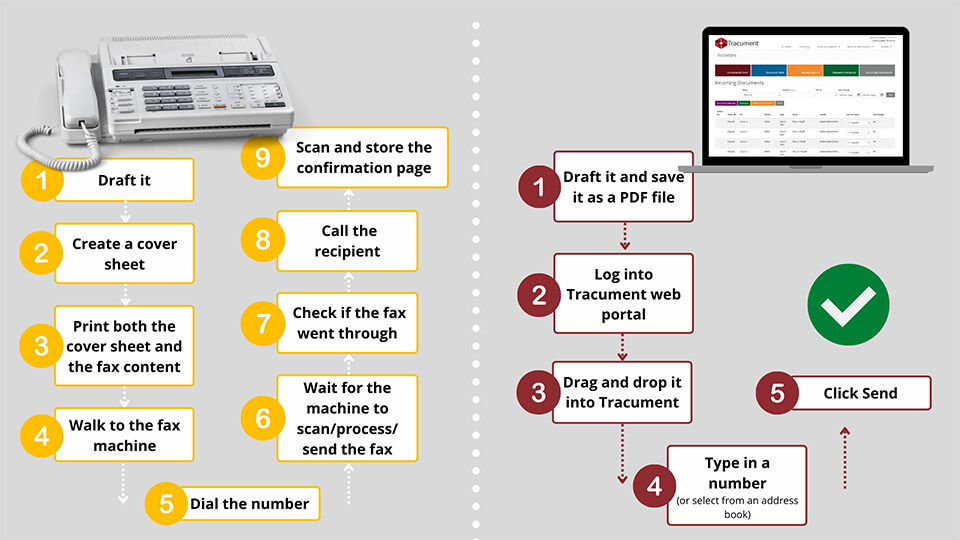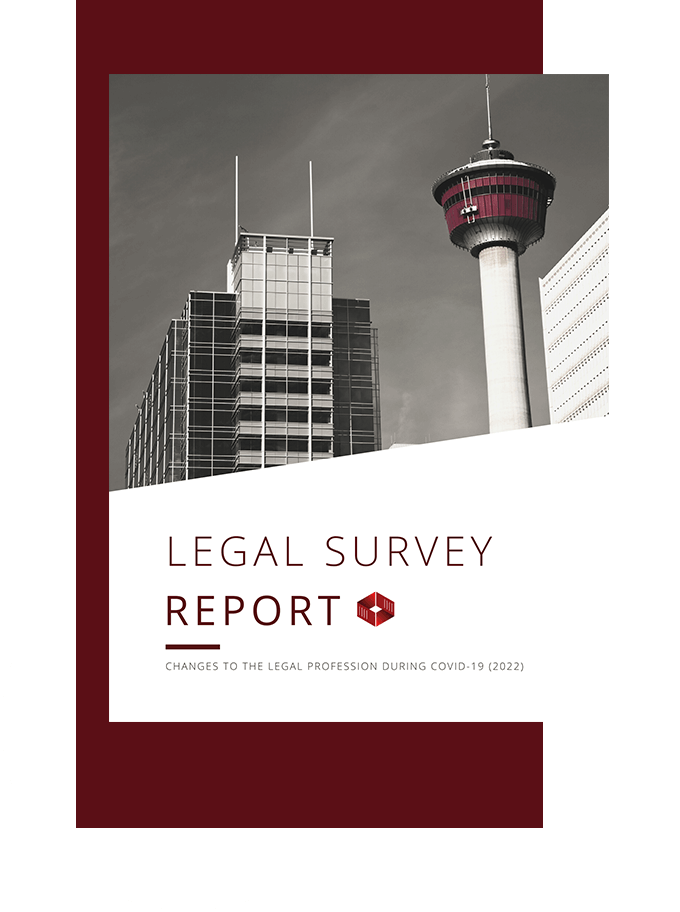
2 Strategies Paralegals Can Use to Maximize their Qualities
Introduction
Recently, our (now former) Director of Business Development and one of our founders, Christopher Coe, had the opportunity to speak with graduating paralegals at Capilano University. He spoke at the invitation of one of the Program Directors, Ms. Deb Jamison, and had the opportunity to share some of the things that he has learned over the dozen years he has spent working in various aspects of the legal industry.
The presentation has been divided into two blog posts and pertains to what makes an excellent LAA in a real-world situation. Part one outlines the four major qualities of a great paralegal. Part two, below, presents two strategies paralegals can use to maximze these qualities.
The text of his presentation follows.
Solutions: Systems and Software
You might be looking over these top four qualities (from our previous blog post) and thinking, “OK, but what do I do about this.” Some people, for instance, are born with great attention to detail; others have to work at it. I have given some initial suggestions as to how to improve these things. In some ways, simply identifying them and knowing that this is what your prospective employers, firms, lawyers, and teams are looking for can help, but I do want to leave you with more than that.
I want to advocate for two powerful, objective strategies that you can bring to bear and will help you improve all of the above qualities, whether they come naturally or not. You can get outside help!
Implement Systems
The first of the two strategies is to implement systems.
There are a number of systems we could look at. Want to improve efficiency? Use templates to spend less time on tasks. Want to improve the level of responsibility you exercise over a file? A great calendar can help you exercise more control. Want to foster a better team? Implement a system for better and more frequent communication.
Let me detail my favourite system, one that can be used to control for chaos and complexity all throughout the files you will work on. To do so, I am going to tell a story from the excellent book, The Checklist Manifesto by Atul Gawande (which I highly recommend).
His book tells the story of David Lee Roth and his band Van Halen's concert contracts. Van Halen would travel quite a bit, taking their show on the road. The band had a highly technical stage with lots of pyrotechnics, and they were worried that either they or their fans might get hurt if the stage were incorrectly set up.
To protect against this, the show contracts would clearly request a bowl of M&Ms “with all the brown candies removed, upon pain of forfeiture of the show, with full compensation to the band.” The story goes on to say that Van Halen actually followed through on this clause at least once.
The first reaction when I tell this story is usually that Van Halen must have been a bunch of picky famous jerks who refused to eat brown M&Ms in order to be weird for the sake of being weird.
In fact, what Van Halen had developed was a checklist. The stage, pyrotechnics, audio, and band's private area (including the M&Ms) were all detailed on a pages-long checklist. If you followed the checklist, the show would be set up properly. If not, people could get hurt.
David Lee Roth's theory was that if the M&Ms clause is overlooked, other critical aspects might also be overlooked. If the band walked in and saw brown M&Ms, they could not be sure that anything else was done safely. The clause was not because they cared about the colour of their candy, but because they wanted things done correctly.
It's a brilliant idea, and The Checklist Manifesto goes on to demonstrate case after case where complex situations benefit from a simple checklist. You can use a checklist to call your attention to details that matter, to make sure you never miss anything on a file, and even to improve efficiency (check the checklist instead of digging through the file), and team communication (publish it so everyone can see the status). My advice? Set them up for everything you do regularly where you cannot afford to miss something.
The point is that this is just one system that can improve, from the outside and with very little effort on your part, many aspects of your practice. Fight to improve systems in your firm, because not all firms set them up naturally.
Incorporate Software into Your Practice
The second tool you can use to improve these qualities without working on the qualities themselves is software, and here I get to give you a bit of a pitch for my company, Tracument.
Our software gives you tools to send and receive documents. Sounds minor, right? However, it is usually not billable and time-consuming, it's finicky and prone to human error, and when mistakes happen, a lot can go wrong. Sending and receiving documents can turn into a nightmare. Let me use a specific example from our platform to show you how software, generally, can help. We make a great fax-from-desktop product. Most law firms still use faxes (I know!). They are an awful technology, a giant pain, but they do allow you to send documents securely and to be absolutely sure they go there. Some firms still use a physical fax machine, and this is what that means:
If you want to fax a piece of legal process, you first need to draft it, maybe create a cover sheet, print both the cover sheet and the fax content, walk to the fax machine, dial the number, wait for the machine to scan/process/send the fax, at which point it will tell you whether the fax went through (gives a confirmation sheet) or failed (gives a failed sheet). Many faxes fail — the receiving machine might not be on, it might be busy, the number might be incorrect, etc. If it fails, you repeat the process until it succeeds. You might have to call the recipient to figure out what is going on. When the fax is eventually successful, you have to scan and store that confirmation page somewhere safe and organized.
Faxing a document the old way, vs using Tracument

Believe me, there are ten thousand paralegals across the country doing this every day.
With Tracument, you stay at your desk. You are logged in to a web portal that you can access from anywhere. When your letter is drafted, you save it as a PDF, drag and drop it into Tracument, type in the number (or use our massive address book), and click send. If you need a cover sheet, you click the auto-cover sheet button. The system will send it for you, and you can forget it. If it fails, the system will figure out how to fix it. The system will then store the confirmation page automatically and forever.
This is a non-billable task that can easily take 20 minutes out of your day if it goes poorly and where any number of mistakes can be made, and there is no reason this should be the case when a firm can bring in a piece of software that turns it into a 30-second task with all kinds of safeguards to make sure mistakes are avoided.
Because I work for Tracument, I get to steal a few minutes out of the presentation to highlight our great software, but take it as an example of a larger trend. There is a lot of great legal software out there that can automate tasks, reduce errors, save time, and make you look great. Law firms, traditionally, are not great at seeking this software out. Make it part of your practice to spend some time each month looking at what can help you do a better job, and then advocate for it within your firm.
Conclusion
The thing that surprised me most as I was putting together this presentation is that, for all the people I asked, not one listed an actual skill, like the drafting of legal process or knowing timelines from memory. When I asked about this, the answer I received was that these can be taught. The above qualities are the baseline that great paralegals bring to the table, onto which all the knowledge and skills can be added.
On a long enough timeline, no one can be perfect in the four areas I highlighted. The work is too complex and there are too many things that can go wrong. It happens to absolutely everyone. However, if you hone the skills as best you can, and you fight to implement strong systems and good software, these three things all working together can minimize issues and help you craft a happy and rewarding practice.
Before Tracument, Christopher worked in several capacities across the legal industry. He started in 2010 when he was hired at a small insurance defence litigation firm called Swadden & Company (now a much larger firm called Meridian Law Group). There he worked in basically an LAA capacity, often directly for paralegals and providing assistance and support on file-related tasks.
After that, he was responsible for opening the Vancouver office of an IME (independent medical examination) provider called AssessMed. AssessMed would organize and conduct IMEs primarily for firms involved in personal injury litigation. Here, he was given a chance to work directly with paralegals a lot, since they are often the deciding force behind booking an expert for a file. He helped acquaint paralegals with experts in the industry and helped them select IMEs that would strengthen their case. At the same time, he learned a lot about the general conduct of litigation files and how to bring about successful outcomes.
From there, He was hired as Director of Operations at Virgin Hickman.
He left Virgin Hickman and took on his current role at Tracument, which was a happy step for him because Tracument is a company he co-founded in 2013.
You may also like
Happy Holidays Message from David Swadden, CEO
December 18, 2025
We would like to wish all our clients and readers a wonderful holiday season filled with joy and laughter.
Tracument Holiday Schedule
December 11, 2025
We would like to update all our clients of our Holiday Schedule this holiday season!
Tracument Wrapped!
December 4, 2025
What 2025 Looked like for Tracument and for you!




